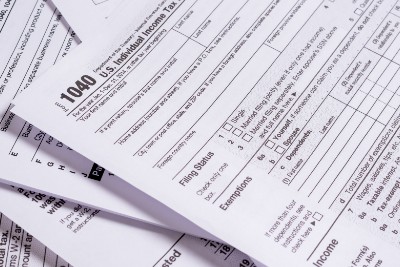
Beware of con artists using the upcoming Child Tax Credit to pretend to “help” you get your payments earlier, get more money, or gather personal information to commit identity theft.
Better Business Bureau Serving Western Virginia offers advice to avoid falling victim to these new opportunistic and timely Government Agency Imposter Scams.
From July 15 through Dec. 31, 2021, parents that qualify for payments through the American Rescue Plan Act will receive monthly payments from the Internal Revenue Service by direct deposit, paper check, or debit cards.
These payments are an advance on the child tax credit, which means eligible people will get up to half of their child tax credit in these monthly payments and the other half when they file their 2021 taxes.
Visit IRS.gov to see who qualifies, how much you may receive, and how to address any problems. Those who qualify also have the option of unenrolling from the advance payments program.
BBB Scam Tracker has reported forty-eight Government Agency Imposter scams filed this year in BBB Serving Western Virginia’s 32-county service area. These scams have resulted in a $2,150 loss and are 16 percent of all scams reported to BBB Scam Tracker.
Reports show con artists use the phone as their primary means of contact to reach victims and credit cards are the main method of payment for scammers to receive funds.
“Scammers wait for opportunities like these to prey on those who need the payments,” said Julie Wheeler, president and CEO of BBB Serving Western Virginia. “It’s important to understand that government agencies like the IRS or Social Security Administration will not call, text, direct message, or email you,” says Wheeler.
According to the Federal Trade Commission, scammers are likely to use impostor scams that may appear to “help” you get your payments earlier, get more money, or commit identity theft.
BBB and the FTC share these tips
- Avoid Impostor scams – Government agencies like the IRS or Social Security Administration will not call, text, direct message, or email you.
- Do not give out any personal information, like social security numbers, bank account information, or credit/debit card numbers.
- Eligibility requirements and payments are only monitored by the IRS.
- When someone is requiring payments by gift card, wire transfers, or cryptocurrency, it is likely a scam.
For more information
Learn more tips on how to avoid scams by reading 10 Steps to avoid scams. If you’ve been a victim of a Child Tax Credit scam, be sure to report it at BBB.org/ScamTracker. Your report can help others to spot a scam before it’s too late.
You can also report scams to the FTC at ReportFraud.ftc.gov.










